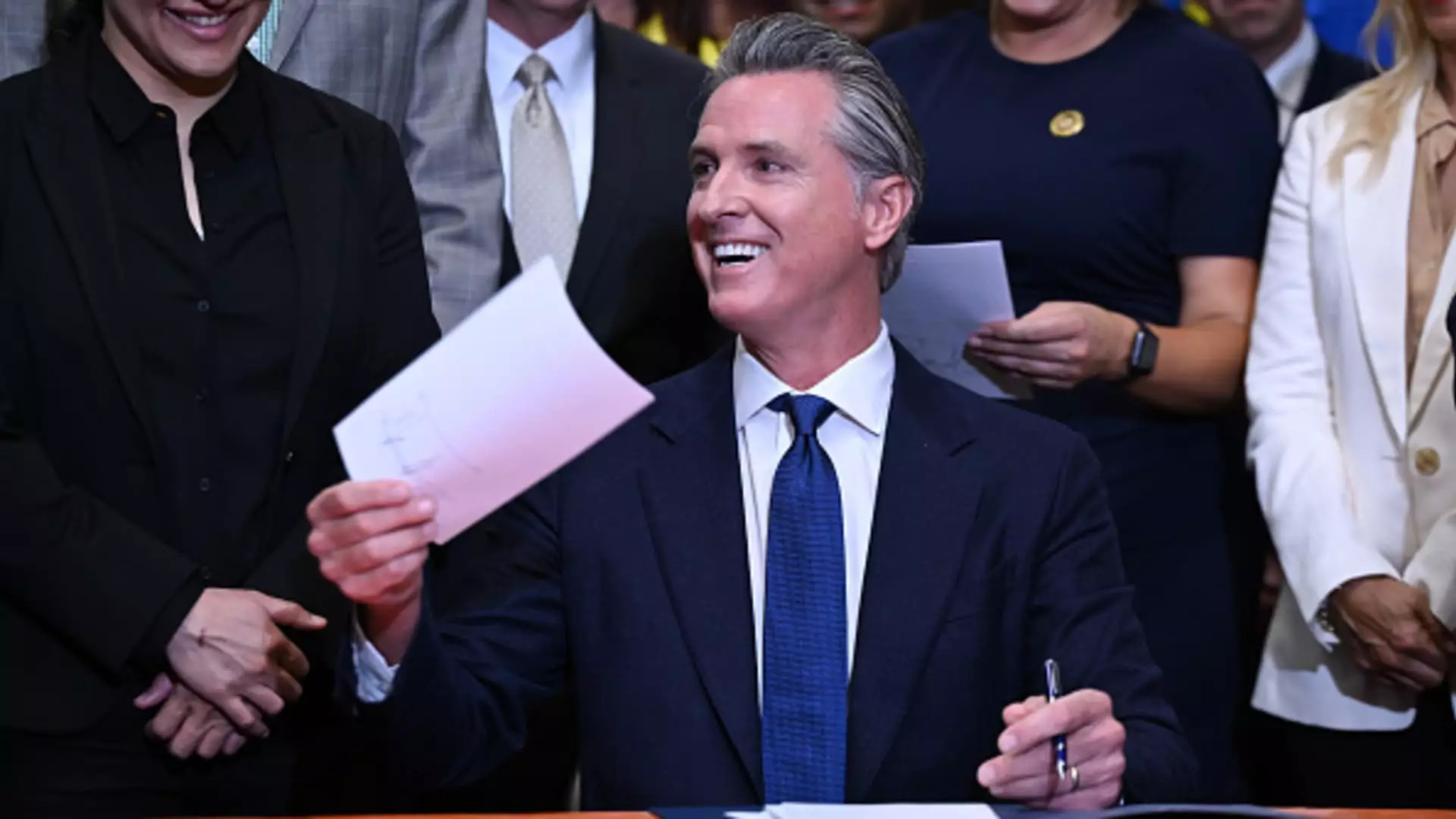California Gov. Gavin Newsom recently signed 10 new bills into law aimed at combating retail crime in the state. These laws address a variety of issues including shoplifting, theft from vehicles, organized theft, and the resale of stolen goods on online marketplaces. The package of laws comes in response to a growing concern among retailers who have been calling on local and federal governments to take action to address retail theft, which has been impacting profits, customers, and staff.
One of the bills in the package, SB 1416, establishes tougher penalties for middlemen involved in organized retail crime rings. This bill was introduced in response to an investigation published by CNBC in March. The new law provides additional prison time and fines for those involved in the sale, exchange, or return of stolen property – activities that are common among organized retail crime rings. Prior to the passage of this law, individuals involved in these crime rings could face up to three years in prison. However, critics argued that this penalty was not a sufficient deterrent. The law was specifically designed to target individuals like Michelle Mack, the leader of an organized retail crime ring that was exposed in the CNBC investigation. Mack and her husband were arrested and ordered to pay millions in restitution to retailers they had stolen from.
Data from the Public Policy Institute of California shows that commercial burglary and commercial robbery rates in California have been steadily increasing in recent years. While shoplifting is still below pre-pandemic levels, it is also on the rise. The California Highway Patrol’s Organized Retail Crime Task Force has made numerous arrests and recovered millions of dollars worth of stolen goods since January. Retailers have been urging Congress to address organized retail crime at a national level, with the National Retail Federation advocating for federal prosecution of theft as a felony.
While the new laws aim to combat retail crime and protect retailers, there are concerns that these measures may disproportionately harm marginalized groups. Critics argue that retailers are exaggerating the impact of theft on their profits and operations. With the 2024 presidential election approaching, Democrats are also under pressure to address rising crime rates and appear tough on crime in response to Republican criticisms.
Another bill in the package, SB 1144, focuses on preventing the trafficking of stolen goods on online marketplaces like Amazon. This bill, introduced by State Sen. Nancy Skinner, updates compliance criteria for high-volume, third-party sellers and makes it easier to file civil charges against online marketplaces that sell stolen goods. These measures aim to crack down on the resale of stolen goods through online platforms.
The new laws signed by Gov. Newsom represent a significant step in the fight against retail crime in California. While these measures aim to protect retailers and deter organized crime rings, there are also concerns about the potential impact on marginalized communities. It will be important for lawmakers to carefully monitor the implementation of these laws to ensure they are effective and equitable in practice.



Leave a Reply